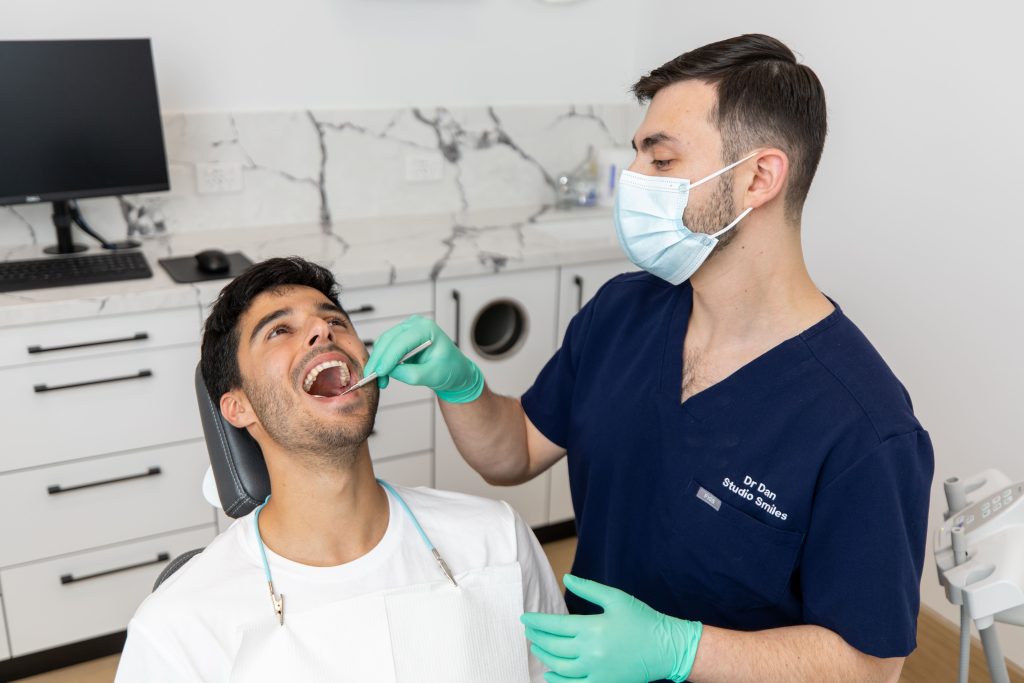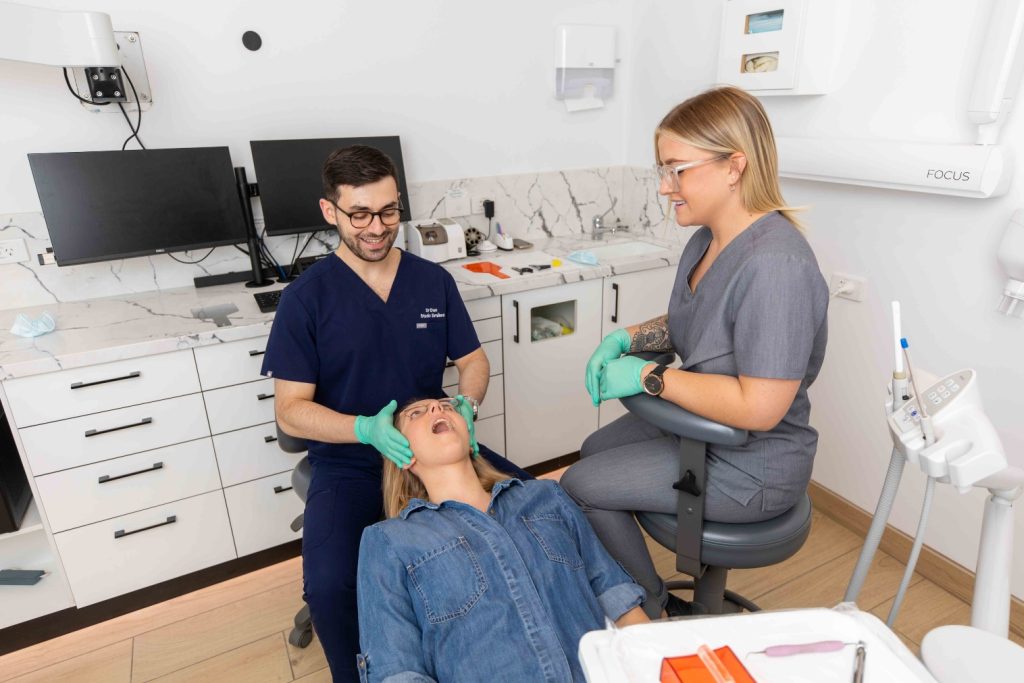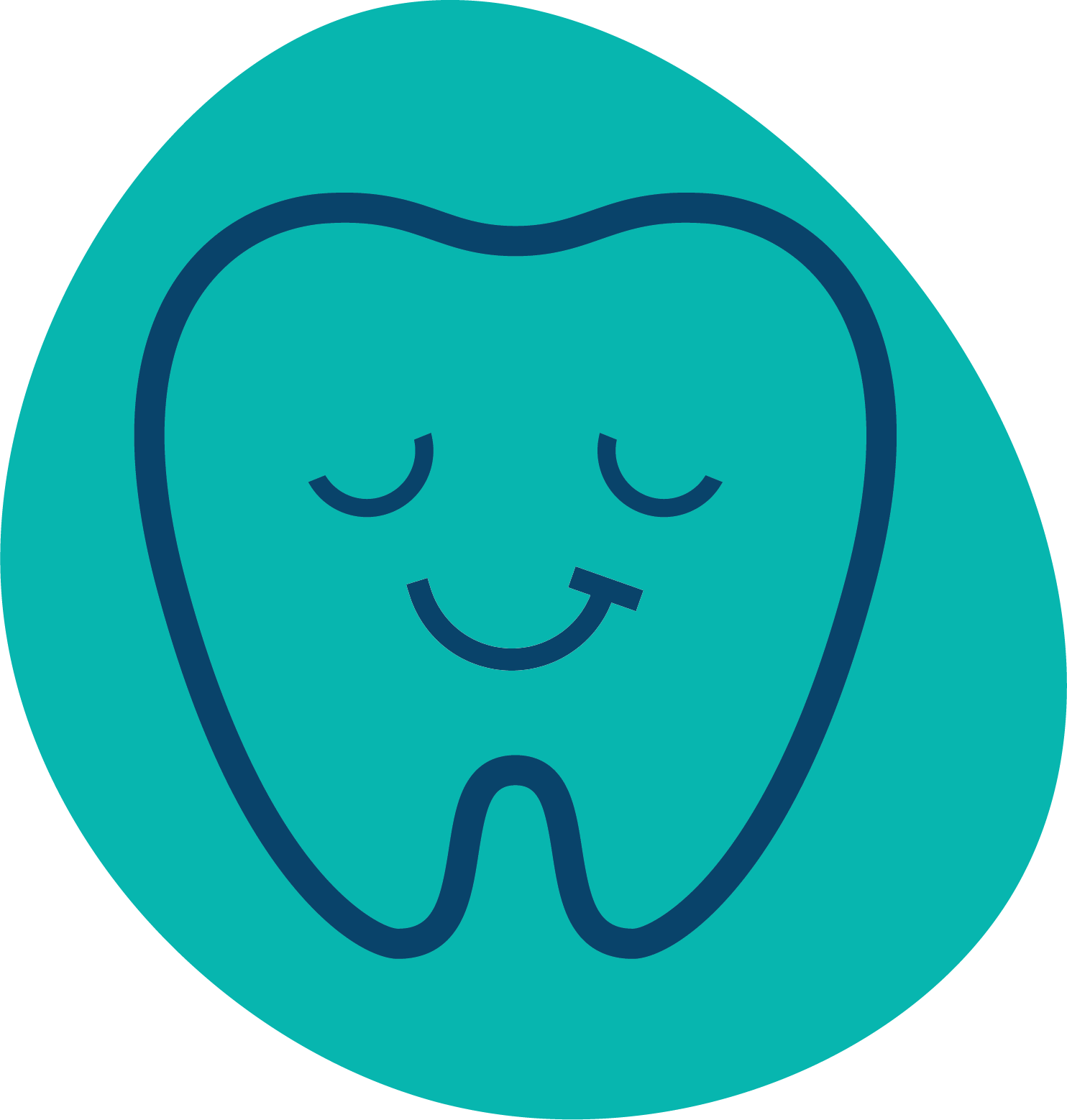General Dentistry
Cosmetic Dentistry
Dental Implants
Welcome to Studio Smiles, a leading provider of dental services specialising in teeth extraction. Tooth extraction is a dental procedure involving removal of a tooth from its socket in the jawbone. While it may seem daunting, there are various reasons why tooth extraction may be necessary. It is typically recommended to patients whose teeth are severely decayed, infected, fractured, or crowded, posing a threat to their oral health. We understand the importance of entrusting dental care to experts. This is why we have a team of highly skilled dental surgeons with extensive experience in performing teeth extractions with precision and care. As an expert in the field, our team performs the extraction procedure safely, efficiently, and with minimal discomfort.

It is generally best to save your natural teeth whenever possible because they offer several advantages over artificial teeth or replacements.
However, there are some situations in which it becomes difficult to avoid teeth extraction.
Here are some common reasons why you may be recommended tooth removal:

While the process may vary slightly depending on the specific circumstances, here is a general overview of a teeth extraction process:
The dental surgeon will administer local anaesthesia to numb the tooth and the surrounding area to ensure comfort during the treatment. In some cases, general anaesthesia or sedation may be used if multiple teeth are being extracted or if you have dental anxiety.
Once the anaesthesia has taken effect, the dental surgeon will use specialised instruments, such as forceps, to loosen the tooth from its socket. They will gently apply pressure and use controlled movements to dislodge the tooth.
Once the tooth is sufficiently loosened, they will carefully grasp it with dental forceps and firmly rock it back and forth to detach it from the ligaments and tissues holding it in place. The pressure may cause slight discomfort, but you should not feel any pain due to the anaesthesia.
After the tooth is successfully separated from its socket, the dental surgeon will extract it from your mouth. If the tooth is impacted or not easily accessible, the dentist may need to make an incision in the gum tissue to expose the tooth fully before extraction.
If incisions are made, they will clean the extraction site to remove debris or infection. In some cases, stitches may be required to close the wound. These stitches are typically dissolvable and do not require removal.
The dental surgeon will place a small piece of sterile gauze over the extraction site to control bleeding and promote clot formation. You’ll be instructed to bite down gently on the gauze for a specific duration to aid in the formation of a blood clot.
After the extraction, the dental surgeon will provide instructions on caring for the extraction site. This may include recommendations for pain management, swelling reduction, and proper oral hygiene practices. You may be prescribed pain medications or antibiotics if necessary, and you may expect the extraction site to heal gradually. It’s essential to follow the post-extraction care instructions the surgeon provides to minimise the risk of complications like severe infection or dry socket.

After teeth extraction, it’s essential to stick to a soft or liquid diet for a day or two to allow the extraction site to heal properly.
Here are some food options that are generally recommended:
Warm, pureed soups without chunks or large pieces are a good choice.
Blended fruits and vegetables, yogurt, and milk or alternative milk options can provide nutrition and hydration. Avoid using a straw to drink anything, as the suction can dislodge the blood clot.
Soft, plain yogurt can be soothing and provide protein and probiotics. Avoid yogurts with added chunks or granola.
Smooth applesauce is easy to eat and gentle on the extraction site.
Creamy mashed potatoes without added spices or hard pieces are a good option.
Soft, gelatinous desserts like puddings and jelly can be easily consumed without chewing.
Softly scrambled eggs can provide protein. However, it is best to avoid adding spices or hard toppings.
Cooked and softened oatmeal is a nutritious and easy-to-eat option. Do not add nuts or seeds to your oatmeal.
Tooth extraction is a dental procedure where a tooth is removed from its socket in the jawbone. The process involves numbing the area and removing the tooth using forceps or, in complex cases, surgical extraction. Post-operative care is important to promote healing and includes managing pain and swelling, keeping the extraction site clean, and attending follow-up appointments.
You might need a tooth extraction if you have severe tooth decay, advanced gum disease, impacted wisdom teeth, orthodontic needs, fractured teeth, extra teeth, or as a preparatory step for dentures or implants.
During a tooth extraction, a tooth is removed from its socket in the jawbone. The area is numbed with local anaesthesia, and the tooth is gently rocked and lifted with forceps, or, in complex cases, a surgical extraction may be performed with an incision in the gum tissue.
After tooth extraction, a blood clot forms in the extraction site to safeguard the underlying bone and nerves. The healing process begins, and you may experience some pain, swelling, and discomfort. It is important to follow post-operative instructions provided by the dentist, rest and recover, and attend a follow-up appointment to monitor healing. Complications are rare but possible, so contact your dentist if any concerning symptoms arise.
Yes, there are alternatives to tooth extraction depending on the specific dental issue. Some other options may include dental fillings or crowns for decayed teeth, root canal treatment for infected teeth, orthodontic treatment to correct misalignment, periodontal treatment for gum disease, and other restorative or preventive measures. It is best to consult a dentist to determine the most appropriate alternative treatment option for your dental condition.
Options to cover the cost of tooth extraction include:
Discuss these options with your dentist to find an affordable solution.
Local anaesthesia is used to numb the area during tooth extraction, ensuring you don’t feel pain. However, you may experience some pressure and discomfort when your dentist pulls your teeth. You will likely experience pain once the anaesthesia wears out, so your dentist will give you medications to manage it. While there may be some discomfort associated with the process, getting a tooth extraction should not be excessively painful.
The recovery time after a tooth extraction varies from person to person. Generally, it takes about one to two weeks to recover fully. The initial healing period, with the formation of a blood clot and closure of the extraction site, takes about 1-2 weeks. However, complete bone and soft tissue healing may take several months. Following your dentist’s post-operative instructions and practising good oral hygiene can help promote faster healing.
After tooth extraction, it is normal to experience some pain, discomfort, and swelling. The intensity and duration of these symptoms can vary from person to person. Your dentist may prescribe pain medications to help manage any post-operative pain. Following post-operative care instructions, such as applying ice packs, maintaining good oral hygiene, and avoiding certain foods, can help minimise pain and discomfort during healing.

Visiting the dentist can be costly. That’s why we’ve come up with our ‘Smile Now, Pay Later’ solution. With interest-free payment plans for Highett patients, you’ll be able to pay on your own terms.
Learn More
With over 40 years of combined dental experience serving Highett, we know what it takes to achieve the smile of your dreams. We’ve thought about every detail so you can feel completely confident.
Learn More
We’re on a mission to show you that visiting the dentist doesn’t have to be unpleasant. Our professional dentist team focuses solely on you and any concerns you have for an enjoyable experience.
Learn MoreOpen this in UX Builder to add and edit content